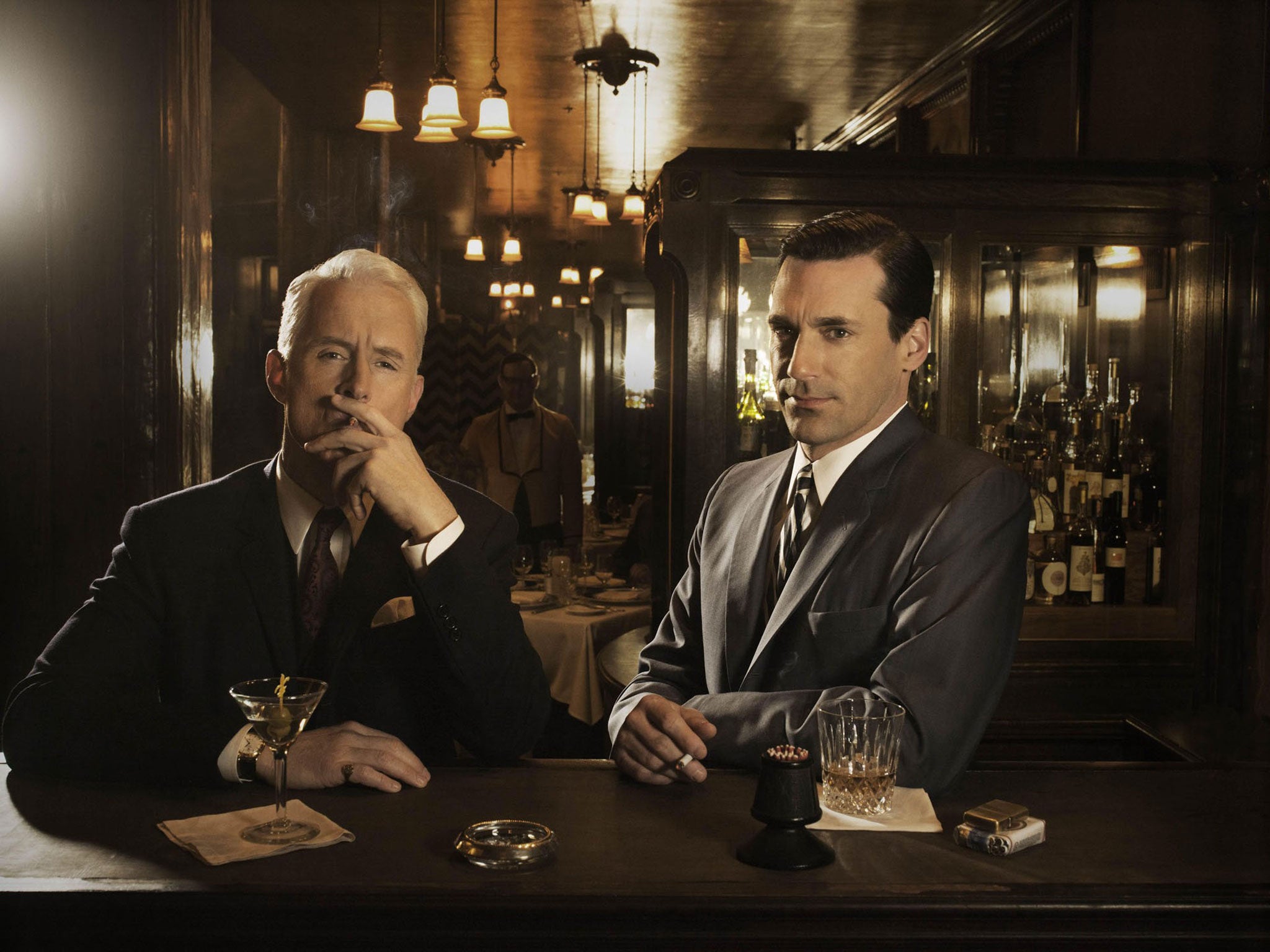Last orders: has the liquid lunch had its day?
To his cost, ex-Glencore trader Andrew Kearns has found being hungover a sackable offence, but the liquid lunch shaped many a day in days gone by, says a wistful John Walsh

It’s a sad day for the lunchtime toper, the 3pm Falstaff, the disciple of Bacchus, the second-bottle-oh-go-on-then-let’s-have-a-third enthusiast. It’s sad, but there it is. You cannot take it for granted that life will feature daytime boozing any longer.
The test case was a man called Andrew Kearns, who worked for Glencore, the oil trading company, and brought a case for wrongful dismissal in the London High Court. He claimed the company had been wrong to sack him for being late or absent from work on 64 occasions, due to him being too hungover to come in. Mr Kearns, 38, who pulled in an annual salary of £140,000, insisted that drinking alcohol was a necessity in everyday business transactions, “an integral part of entertaining and building relationships with people.” He also opined that, at Glencore, “you could do what you liked, provided you make money.”
He was wrong. There turned out to be limits. Colleagues reported that Mr Kearns “acted strangely” after lunches, “shouted at seniors” and once deliberately broke a bottle of wine when meeting a Glencore bigwig. Perhaps he had lost the corkscrew, and was anxious to start the relationship-building without delay. Anyway, the last straw was a trip to Singapore when Kearns’s inability to bestir himself in the mornings lost him several vital meetings. The judge threw out his appeal, calling it “ludicrous” and a spokesman for the company said, portentously, “The days of the liquid lunch are over.”
Seriously? In some trades and professions, lunch is an important component, in which the need for person A to persuade person B to do something arduous and time-consuming is oiled and accelerated by copious amounts of wine. Publishing for instance. The agent or publisher traditionally took their author to dine at J Sheekey or the Garrick Club in London’s West End, flattered her or him about their brilliance, regaled them with soup, cod and trifle, and, halfway through the second bottle, extracted a promise that they’d deliver 80,000 words in nine month. Would they have said yes otherwise? And what will agents and publishers do now, without that second bottle of Cheval Blanc?
Journalism, you’ll be unsurprised to hear, used to depend on the boozy lunch to operate at all. At the end of the Fleet Street era, all attempts to write an Important Leading Article for a 4pm deadline were abandoned at 1pm while the professional scribe relocated to El Vino’s shrine-like bar, to find several like-minded hacks ready with helpful suggestions as to the projected article’s progress. Refreshed by four glasses of Petit Chablis, and fully briefed on all shades of opinion about his subject, the journalist would reel back to the office and produce a thunderous 500 words of unarguable, Churchillian rhodomontade.
In the US, the “three-martini lunch” was a staple of business practice for a simple reason: because conversation at lunch generally involved talking business, the cost of lunch could be tax deductible. Technically, you were still working as you drank the martinis, ate the lobster or steak and bantered with colleagues. In 1978, President Gerald Ford said, “The three-martini lunch is the epitome of American efficiency. Where else can you get an earful, a bellyful and snootful at the same time?” Alas, the tax break was drastically reduced and lunchtime drinking fell out of favour. The 1960-ish scenes portrayed in Mad Men, of Don Draper and Roger Sterling flooring cocktails for two hours in a bar before weaving back to work and puking up, ended in the 21st century.
We’ve all had to become more efficient. More sober. Content with that delicious S. Pellegrino, that citric Oasis, or perhaps an energising skinny latte. But it’s possible to feel a tinge of nostalgia for something delightful that’s been lost. And I don’t mean the desire to shout at your boss, or to have a little nap at 4.05 in the afternoon.
Subscribe to Independent Premium to bookmark this article
Want to bookmark your favourite articles and stories to read or reference later? Start your Independent Premium subscription today.

Join our commenting forum
Join thought-provoking conversations, follow other Independent readers and see their replies